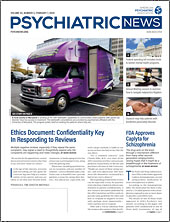The Trump administration issued a new policy last month effectively banning the sale of certain flavored e-cigarette products that appeal to youth, but policy experts pointed out the measure’s loopholes and said it fails to provide enough protection.
The administration has been under increasing pressure to address what is being called an “epidemic” of youth e-cigarette use. According to the 2019 National Youth Tobacco Survey (NYTS), more than 5 million teens are using e-cigarettes, with 28% of high schoolers and 11% of middle schoolers reporting use in the past 30 days.
In addition, more than 2,600 individuals, mostly young adults, have been hospitalized and 57 have died, in an outbreak of e-cigarette or vaping-related lung injury. (The injuries have been associated primarily with products containing THC, according to the latest report by the Centers for Disease Control and Prevention [CDC].)
The new policy comes on the heels of legislation signed by Trump that raises the minimum age of tobacco use, including e-cigarettes, to 21 from its current 18. Under the Food and Drug Administration’s (FDA) new policy, which took effect February 2, the agency said it will take action against companies that manufacture, distribute, or sell flavored pods or cartridge-based cigarettes, except for menthol. In addition to menthol, the policy exempts all flavors of “open tank” e-cigarette systems that use e-liquids, which are typically sold at vape shops.
The flavored e-cigarette pods the policy targets are appealing to youth because they are so easy to use and conceal, the FDA wrote. The policy is a departure from Trump’s announcement last fall when he vowed to ban all flavors of e-cigarettes, aside from tobacco flavored.
“This offers some improvement, but there are still several loopholes in this new policy,” said Douglas Ziedonis, M.D., M.P.H., chair of APA’s Workgroup on Tobacco Use Disorder in the Council on Addiction Psychiatry, which is in the process of writing a policy statement on vaping products and e-cigarettes.
“For one, we know that menthol-flavored tobacco products are highly appealing to adolescents and can ease their initiation to e-cigarette use by allowing them to more comfortably inhale the tobacco vapors,” said Ziedonis, who also serves as associate vice chancellor for health sciences and professor of psychiatry at the University of California, San Diego. The NYTS survey found that more than half (57%) of high schoolers who use e-cigarettes use mint or menthol flavors. “And second, allowing the sale of all flavored e-liquids to continue will result in adolescents and young adults continuing to obtain them.”
Harold Wimmer, president and CEO of the American Lung Association, said the administration’s plan falls short of what is needed to protect the health of our nation’s youth. Keeping menthol-flavored Juul and thousands of flavors of e-cigarettes sold in vape shops on the market will make it easier for kids to become addicted, he said. “The American Lung Association is sad to see an industry-supported approach take precedence over our kids’ lung health.”
Ziedonis pointed out that tobacco use disorder is the leading cause of the increased morbidity and mortality among patients with psychiatric illness, and for patients with serious mental illness, results in a 26-year shorter life span. “As psychiatrists it is so vital that we integrate the assessment and treatment of tobacco use disorder into our practice, including the use of new e-cigarette and vaping products,” he said. “It is important for psychiatrists to have the most up-to-date information on assessment and management involving these products.”
Ziedonis recommends that practitioners consult the CDC for the most up-to-date guidance on helping patients who use e-cigarettes or vape.
The FDA’s news release is posted
here. The CDC’s latest guidance for practitioners on assessment and management of e-cigarettes/vaping is posted
here.

